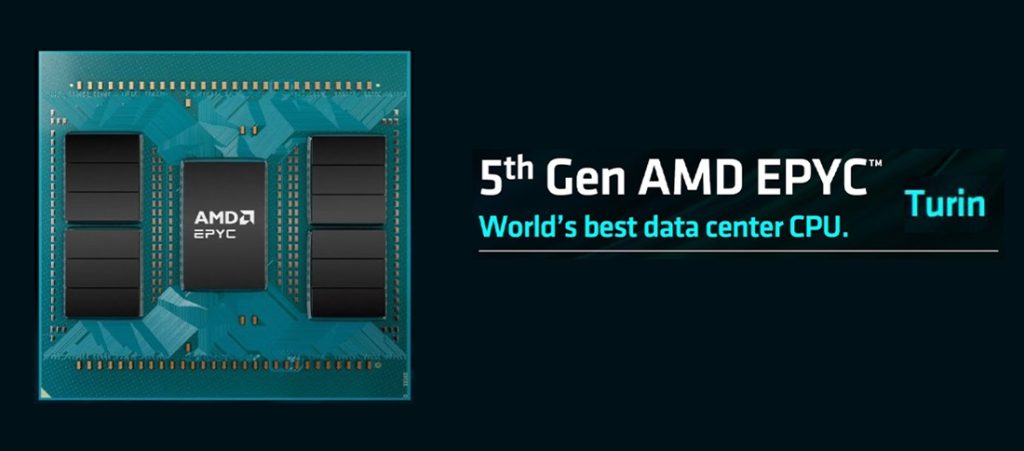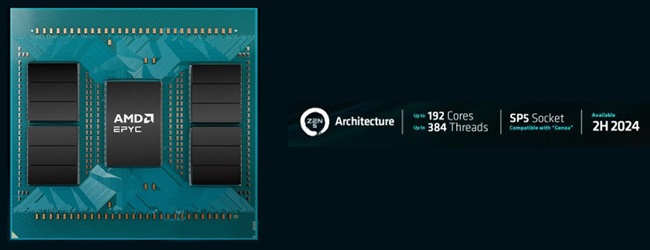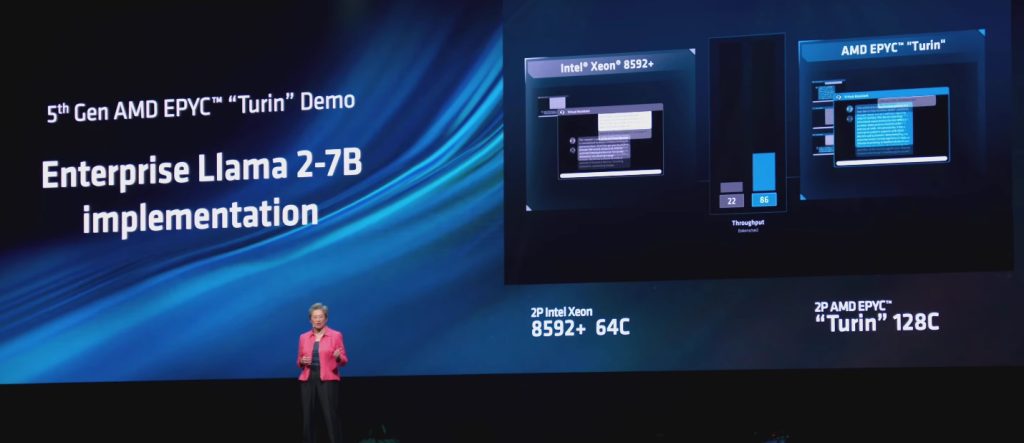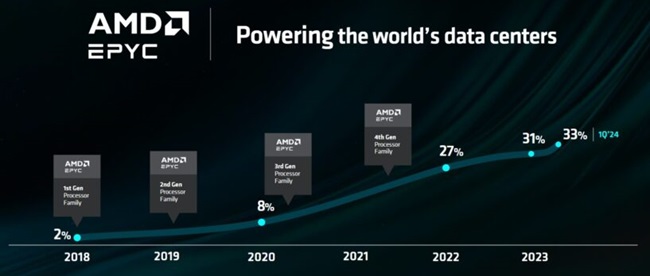
At Computex 2024, AMD previewed its latest EPYC 9005 “Turin” CPU family. These chips, featuring up to 192 Zen 5 cores, are set to be released in the latter half of 2024.
AMD’s Zen 5 architecture for EPYC 9005
The EPYC 9005 chips mark the debut of AMD’s Zen 5 architecture for data center chips. AMD claims they are significantly faster than Intel’s current-gen Xeon chips, boasting up to 5.4 times better performance in key AI workloads.
There are two variants of Turin: one with standard Zen 5 cores and another with a density-optimized variant called Zen 5c.

Specifications and Benchmark Performance
The new chips will offer up to 192 cores and 384 threads, manufactured on the 3nm process node. They will be paired with a 6nm I/O Die (IOD) in a single socket configuration, comprising 13 chiplets.
The highest core count models will utilize AMD’s Zen 5c architecture, similar to Intel’s e-cores. Lisa Su, AMD’s CEO, presented several benchmarks against Intel’s Xeon chips, indicating significant advantages for Turin.

These include a 5.4X advantage in AI models, a 2.5X advantage in translation models, and a 3.9X advantage in summarization work. Additionally, Turin demonstrated a 3.1X advantage in the NAMD scientific workload and delivered 4X more tokens per second in a live demo.

Comparison with Previous Models
The EPYC Turin chips succeed AMD’s EPYC Bergamo series, offering higher core density.
While Bergamo tops out at 128 cores, Turin pushes the limit to 192 cores. The density-optimized Zen 5c core reduces the area needed for each core while maintaining full features, appealing particularly to hyperscalers.

Competition and Compatibility
Turin will compete with Intel’s Sierra Forest chips (144-core) and Ampere’s AmpereOne processors (192-core).
It will utilize the SP5 socket, ensuring compatibility with existing motherboards used for EPYC Genoa and Bergamo, enabling a straightforward upgrade process and faster time to market for newer servers.

Availability
More details on the 5th Gen AMD EPYC processor ‘Turin’ chips are expected closer to the market launch, which is targeted for the second half of 2024.
